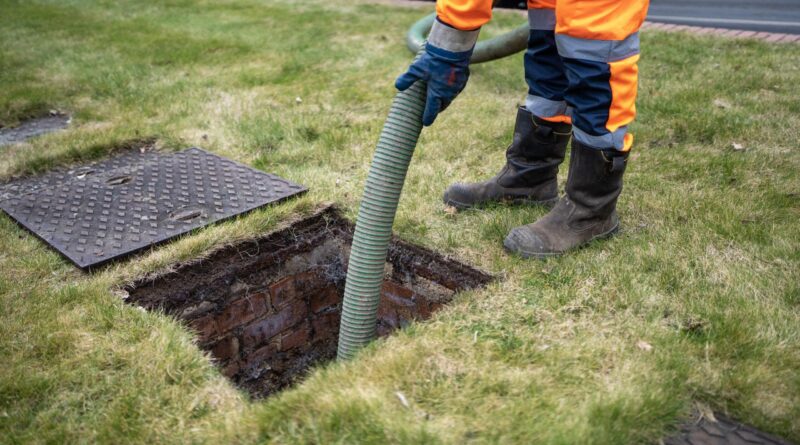Cess Pit Emptying and Health: Why Timely Service Is Crucial
Cess pits are essential for managing wastewater in properties that are not connected to a public sewer system. Proper maintenance, particularly cess pit emptying, is crucial not only for the functionality of the system but also for safeguarding public health. This blog delves into why timely cess pit emptying is crucial for maintaining health standards, preventing potential hazards, and ensuring overall well-being.
What is a Cess Pit?
A cess pit is a type of septic tank used to collect and store wastewater and solid waste from a property. Unlike modern sewage systems that treat wastewater before discharge, cess pits merely hold the waste until it can be safely removed. Regular cess pit emptying is necessary to prevent overflows and ensure that the system functions properly.
The Connection Between Cess Pit Emptying and Health
1. Prevents Contamination of Groundwater
One of the most critical health-related reasons for timely cess pit emptying is to prevent contamination of groundwater. When a cess pit is not emptied regularly, it can overflow or leak, allowing untreated waste to seep into the soil. This contamination can reach groundwater supplies, which may be used for drinking or irrigation.
- Impact on Drinking Water: Contaminated groundwater can pose serious health risks if it enters drinking water supplies. Pathogens and pollutants can cause waterborne diseases and health problems.
- Effect on Local Ecosystems: Groundwater contamination can also affect local ecosystems, harming plants, animals, and overall environmental health.
2. Reduces the Risk of Disease Outbreaks
Improperly maintained cess pits can become breeding grounds for harmful bacteria and pathogens. These microorganisms can spread through leaks, overflows, and even through the air.
- Bacterial Contamination: Bacteria such as E. coli and Salmonella can thrive in untreated waste, leading to gastrointestinal infections and other health issues.
- Vector Attraction: Overfilled or leaking cess pits can attract pests like flies and rodents, which can carry diseases and contribute to health problems.
3. Prevents Unpleasant Odors
A cess pit that is not emptied regularly can produce unpleasant odors, which can be more than just a nuisance. These odors often indicate the presence of decaying waste and gases that can be harmful if inhaled.
- Health Implications: Prolonged exposure to foul odors can cause respiratory issues and discomfort. In severe cases, it can lead to more significant health problems if the gases are toxic.
- Impact on Quality of Life: Persistent unpleasant odors can affect your quality of life and the well-being of those living in close proximity.
4. Avoids Environmental Hazards
Timely cess pit emptying helps mitigate environmental hazards that can arise from untreated waste. These hazards include soil contamination, water pollution, and the degradation of natural habitats.
- Soil Contamination: Untreated waste can leach into the soil, affecting soil quality and making it unsafe for planting or agricultural use.
- Water Pollution: Overflowing or leaking cess pits can pollute surface water sources, impacting both aquatic life and human health.
The Cess Pit Emptying Process: Ensuring Health and Safety
1. Regular Inspections
Regular inspections are the first step in ensuring that your cess pit remains in good condition. During an inspection, a professional will:
- Assess Condition: Check the overall condition of the cess pit, including its structure and components.
- Identify Issues: Look for signs of wear, damage, or potential problems that could affect health and safety.
2. Scheduled Emptying
Cess pit emptying should be performed at regular intervals to prevent issues related to overflows and leaks. The frequency of emptying depends on various factors:
- Size of the Cess Pit: Larger pits may need to be emptied less frequently than smaller ones.
- Usage: High water usage or more waste production may require more frequent emptying.
3. Professional Service
Engaging a professional service provider for cess pit emptying ensures that the process is handled safely and effectively. A professional will:
- Use Proper Equipment: Utilize specialized equipment to remove waste safely and efficiently.
- Follow Regulations: Adhere to environmental regulations for waste disposal and treatment.
4. Post-Emptying Maintenance
After emptying the cess pit, maintenance tasks such as cleaning and inspecting the system are crucial for ensuring continued health and safety.
- Cleaning: Remove any residual sludge or debris from the cess pit to prevent unpleasant odors and maintain hygiene.
- Inspection: Conduct a final inspection to check for any remaining issues or damage that needs attention.
Health Benefits of Timely Cess Pit Emptying
1. Improved Public Health
By preventing contamination of groundwater and reducing the risk of disease outbreaks, timely cess pit emptying directly contributes to improved public health. It ensures that wastewater is managed properly, minimizing health risks associated with untreated waste.
2. Enhanced Quality of Life
A well-maintained cess pit prevents unpleasant odors and environmental hazards, contributing to a higher quality of life. It ensures that your living environment is safe, clean, and free from health risks associated with waste mismanagement.
3. Protection of the Environment
Regular cess pit emptying helps protect the environment by preventing soil and water contamination. This contributes to the preservation of natural habitats and the health of local ecosystems.
Tips for Maintaining Your Cess Pit
1. Schedule Regular Maintenance
Plan for regular cess pit emptying and maintenance based on the size of your pit and usage patterns. Regular service helps prevent potential health risks and keeps the system functioning properly.
2. Monitor for Signs of Trouble
Be vigilant for signs such as slow drainage, unpleasant odors, or standing water around the cess pit. Addressing these signs promptly can prevent more serious health and safety issues.
3. Choose a Reputable Service Provider
Select a reputable cess pit emptying service provider with experience and a good track record. Ensure that they are licensed and follow proper procedures for waste removal and disposal.
4. Educate Yourself
Understanding the importance of cess pit maintenance and how it impacts health can help you make informed decisions about managing your waste system. Stay proactive and informed to ensure the safety and well-being of your household and community.
Conclusion
Timely cess pit emptying is crucial not only for the functionality of your waste management system but also for safeguarding health and environmental well-being. By ensuring regular maintenance, you prevent contamination, reduce health risks, and protect both your property and the environment. Stay proactive in managing your cess pit, engage professional services, and adhere to best practices to enjoy a safe, healthy, and well-maintained living environment.



